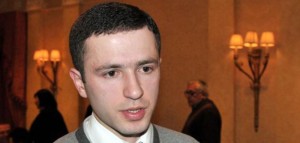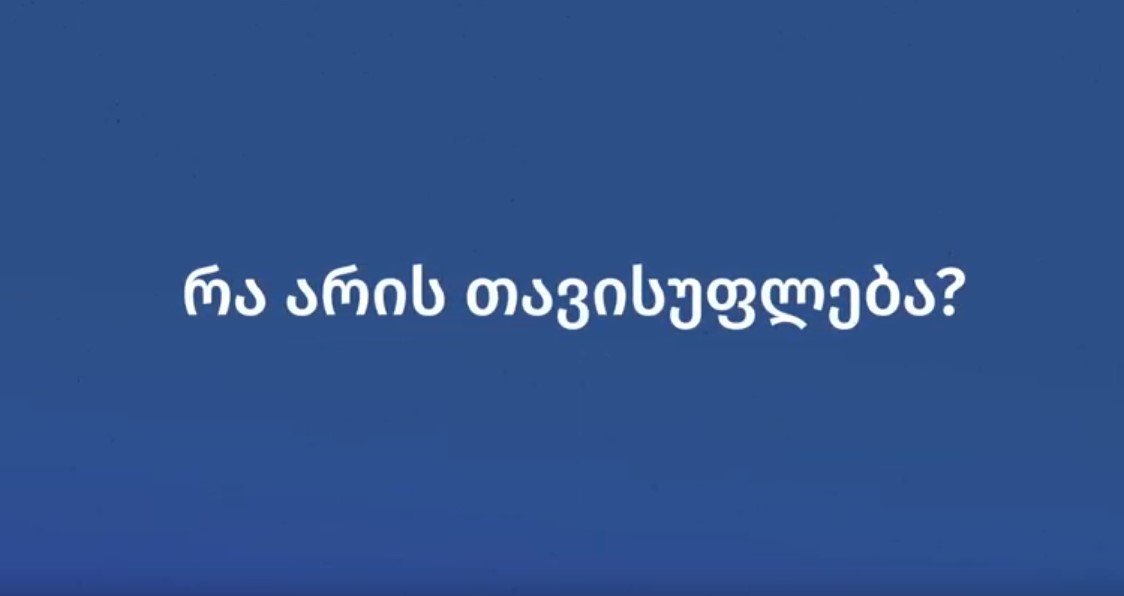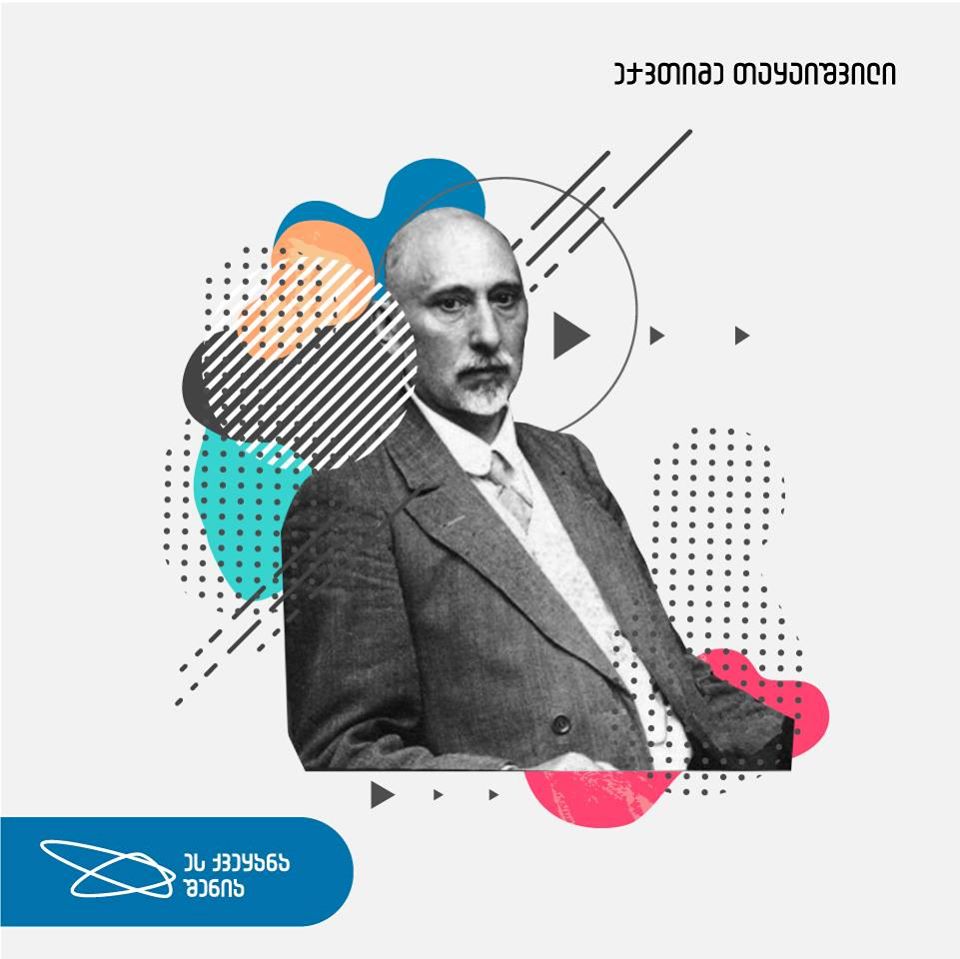‘’Doing the Same and like Two Decades Ago’’
Popular





CSO webportal has interviewed the Chairman of GYLA Kakha Kozhoridze
Interviewed by Lali Shalvashvili
Let's start with the environment that CSOs have to work in. What is it like and are there any hindering factors?
Kakha Kozhoridze – I believe there is no bad environment for the CSO activities, and especially after the parliamentary elections. Directly after the elections the new authorities were extremely interested in the experience of the CSO sector. They wanted to transform the third sector’s visions and approaches into concrete initiatives, bills, and ways of solution of certain problems. Our organization possessed such experience. For instance, major part of amendments made to the Law on the Common Courts, on which the first stage of judicial reform was built, was based on our opinions and ideas. This was at the first stage, when there was a great willingness to accept and share comments and opinions, however, I think working environment is not bad today either. In any case, some CSO or its staff is not threatened due to its position. Of course this should not lead us to complacency, because it should always be this way. When we’re better than someone else in this respect, it does not mean that there is an ideal environment. There are one or two bad examples in this respect, representatives of CSO "Multinational Georgia” have noted that the employee of the Minister of Interior had attempted to exercise pressure on their staff member.
In the described working environment the organization’s success mostly depends on its activeness, correct work planning and professionalism.
You have mentioned willingness to cooperate directly after the parliamentary elections. Does this mean that something has changed then on? What is the current situation?
Kakha Kozhoridze – Willingness to cooperate was firmer at the first stage after the parliamentary elections. Now I have a feeling that willingness is weaker, but I couldn’t say it is totally absent. I can bring specific examples. We – the Young Lawyers, Transparency International and ISFED – have left the Inter-Factional Group, and not because they have not accepted our recommendations and proposals, but because they have not examined our proposals duly. We understand also that something will be taken into account and something will not, but when something is not taken into account we want to have a motivated response. When we saw that the Inter-Factional Group has not considered our proposals, there was no battle of arguments and there was a desire of political decision-making, we couldn’t find our place there and left it. Same applies to postponement of procedure for interrogating witnesses. The Parliament has changed its decision for several times. It was also unfortunate when they have put down our representatives’ posters in the Parliament. We have not violated any rule, the Regulations, or law, and therefore there were no legal grounds whatsoever for putting down the posters. Such examples also create bad impression and environment. Despite everything, I would still repeat that overall in general an organization can be successful in this environment and situation if it pursues professional and impartial activities.
You have mentioned that the environment has changed in the aftermath of parliamentary elections. What was it like, could you identify parallels or differences...
Kakha Kozhoridze – I think there is a better environment overall. Yet, there are exceptions in some respect today as well, when organizations may experience problems not reported in previous years. For example, attitude towards CSO "Identity” and its ideas makes me say this.
By attitude you mean public attitude or the state attitude?
Kakha Kozhoridze – Both, including the attitude of representatives of the authorities. On the other hand, problems of those times, when owing to the activities of some individual his/her relatives faced problems at work or something similar, are now gone. My family member has experienced such a problem and this is my personal experience, but nowadays I haven’t heard of any problems caused to the relatives of CSO representatives due to their activities.
Do CSOs experience the same environment in regions as well?
Kakha Kozhoridze – I haven’t studied this issue thoroughly, but as a citizen who is connected with CSO activities I could say that situation is the same. However, I would repeat that our organization has not studied this area but I have information received from our 7 regional offices. They cooperate with the local authorities, but talk about problems openly in case they exist.
How would you assess the sector's activities as a whole, what has it achieved and what has it not?
Kakha Kozhoridze – Discussing a systemic picture is a bit difficult. There are too many organizations, all of them with their action plans and it may be that the plans and objectives of many of them do not coincide, and that they do not wish to act jointly. Yet, there are issues demonstrating progress. For instance, GYLA currently chairs the CSO Coalition for Independent and Transparent Justice, and over 30 organizations affiliated in it work on judicial topics. This is an active coalition, which in professional terms has a say in the judicial reform process. The legislation partly accepts and reflects the initiatives of this Coalition. It is an achievement when along with the change of authorities you do not change your values and approaches, and when you saw the problems back then and see them now, you talk about them now just like back then – this is a consistent and continuing process and for this very reason you will deserve more public respect and the authorities will look at you differently.
There are organizations associated with political groups. I believe this isn’t a problem – they may have a declared vision. There are organizations and coalitions, whose work and statements are reacted to and which can have positive impact on the processes. Sometimes several organizations may work on the same issue, but the activities of only one of them could be followed up.
What could be the reason? Is it an organization's work quality that matters or there is some other reason?
Kakha Kozhoridze – I think the reactions of public and the authorities depend more on the duration of the organization’s activities. Further, time must demonstrate that changes in the political sector do not have impact on this organization’s values and impartiality. This year GYLA becomes 20 and throughout its existence we have produced numerous studies and draft laws, but I believe the organization’s key achievement lies in the values that have not changed over time. We are doing the same and like two decades ago.
What has the sector failed to achieve? Experts claim and studies demonstrate that relations between the public and CSO sector are fragile and often they do not last beyond project frameworks...
Kakha Kozhoridze – An organization’s activities in general are limited to a project and this is common. Some organizations may want to do more but this requires resources and the resources may be insufficient. In this case I would talk about GYLA as well – we really do not restrict ourselves with projects. GYLA’s legal aid centers function in Tbilisi and 7 regions – we have never said we would consult the concrete category of persons. Any individual can receive legal consultations from us, on any legal issue. Therefore, we do not have a problem of communicating with the population, and the fact that CSOs have less contact with the population applies to us the least, because the number of consultations in recent years has exceeded hundred thousand. Contacts contribute to the awareness of every organization and determine public attitude as well.
What is the influence of CSOs over the public?
Kakha Kozhoridze – It depends on the issue. There are issues in respect of which you feel public’s firm support. However, sometimes after raising this or that issue talks begin about you being an appendix of some political party. On the second and third day you raise a totally different issue and then they are confused – it’s hard for them to understand whether you are opposition or someone else. Sometimes this is what we get, but overall I think there are strong CSOs in Georgia, whose positions have impact on certain processes. When a legal assessment is needed, journalists are interested in our position, which also influences to a certain extent.
Why do you think former officials move to the CSO sector?
Kakha Kozhoridze – Deputy Ministers and Department Heads were told that labor relations with them were over and they had to resign from office. These people worked in certain areas for years and gained experience and qualification, and therefore they could not sit at home. They need the arena to apply their experience in work and accordingly it’s not surprising that these people set up organizations and express positions. I do not comprehend this process negatively. Yet, the attitude toward such organizations is a different issue, as well as the extent to which such organizations can remain neutral and impartial in light of previous activities of their founders. On several occasions there may be a positive attitude towards such organizations, and sometimes – negative. This requires time, one year is not sufficient for determining the choice of this or that organization and the sustainability of its visions.
Let's talk about relations between international and local donor organizations and CSOs, it is often said that CSOs have to tailor to announced grant competitions and they do not offer donors issues of concern to the society... Is there more work for CSOs in this respect?
Kakha Kozhoridze – Many projects were developed at our own initiative and we often offer project proposals to donor organizations. This is good because local organizations are much better at identifying problems. We haven’t studied this thoroughly, but in view of relations that I personally have with donors or CSOs it is obvious there is a lack of good ideas and innovative visions... More activeness is required.
Grant competitions are the source of income of CSOs. Why relations with business could not be built to generate sort of alternative sources of income?
Kakha Kozhoridze – This process really requires assistance. It would be great to somehow introduce the culture of citizens or business representatives donating to organizations acceptable to them. This is an accepted practice in the US and Europe. In several cases the legislation prescribes that certain amount of an income tax is diverted to a preferable organization. In such cases the principle matters and not the amount. Similar idea is being developed here as well, and we support this idea. As for the failure to build partnership relations with business, it’s hard to say, maybe there is less experience in this respect.
We had one case, in which we provided legal services to one organization. Although we lost the case, the client was so fond of our approaches and professionalism that after being convinced that the loss wasn’t our fault – the court did not render lawful decision – it amended its charter to transfer 7 percent of profit to our organization. We haven’t received the amount yet and don’t know what to expect, but in this case the amount is not important. Such initiatives are required in general so that in the long-term perspective these organizations develop and there are fewer reproaches about working on foreign grants and defending their interests. I should definitely say that none of donor organizations that we deal with has ever instructed us directly or indirectly to have some position on this or that issue. Our positions presented to the society on various issues are always ours and none of the donors interfere. I’m saying this in response to allegations that the organization’s positions are driven by the donors. I would like to repeat that I’m not sure what is going on in other organizations, but with us none of the donors has said anything similar.
You have mentioned the mechanism of donating to organizations, which you think is essential. There are quite many CSOs in Georgia and this mechanism may "bypass" an organization, which works hard and does good things, due to a simple reason that public is not aware of its activities... and even symbolic donations may go to few CSOs...
Kakha Kozhoridze – This idea requires good development. Certain portion of donations may be distributed according to the tax-payer’s choice, and the other portion – could be diverted to the CSO Development Fund, etc. This idea indeed requires contemplation and elaboration.
What is the reason behind periodic expression of attitudes towards CSOs? Is this a campaign-type action or part of the population still does not have access to the sector and its activities and it only has fragmentary idea about the sector?
Kakha Kozhoridze – Lack of counter-arguments in response to the organization’s position on this or that issue could be one of the reasons. This is the very time when they say "oh they are grant-eaters, how could we believe them”, etc. I find they use this during discussions to avoid arguments, whereas a discussion concerns a concrete issue you have an expectation to hear critique. Reasonable critique is good and we really don’t think that CSOs shouldn’t be criticized and only the authorities should be criticized. We are ready to accept objective critique and analyze it. This will even help us.
Overall I find that certain attitudes towards CSOs are more spontaneous – they erupt and then fade away.
Was the CSO sector free during the previous authorities, did it criticize previous authorities, what were the reactions of solid organizations after the May 26 rally... These are the issues that former Prime Minister Bidzina Ivanishvili has raised in one of the interviews with respect to CSOs... You are in charge of one of the solid organizations, what would you say about these issues?
Kakha Kozhoridze – GYLA’s position after the May 26 rally, and what then GYLA’s chair had said, explained and justified, has caused dissatisfaction among a part of the public. I can state with full responsibility that if anyone has said something about May 26, it was GYLA and the study drafted with personal participation of then GYLA’s chair and participation of our staff attests to this. No other organization has produced similarly criticizing and thoroughly analyzed study. To discuss processes of those times I can tell you that I was the coordinator of the Legal Aid Center and together with lawyers and my colleagues we had spent the night on May 26 in courtrooms defending the detained individuals. We were doing our best. Whether the court accepted our reasoning or not is another matter. I don’t think the court decision was behind everything that Bidzina Ivanishvili had said. In addition, it is very easy to clarify the organization’s position, there are recordings available online. I’m not saying this in response to Bidzina Ivanishvili personally, it’s that this issue is not new and generally it is easily available for those who are interested.
What are the three values that CSO activities must be built on...
Kakha Kozhoridze – impartiality, adherence to principles, and professionalism.









